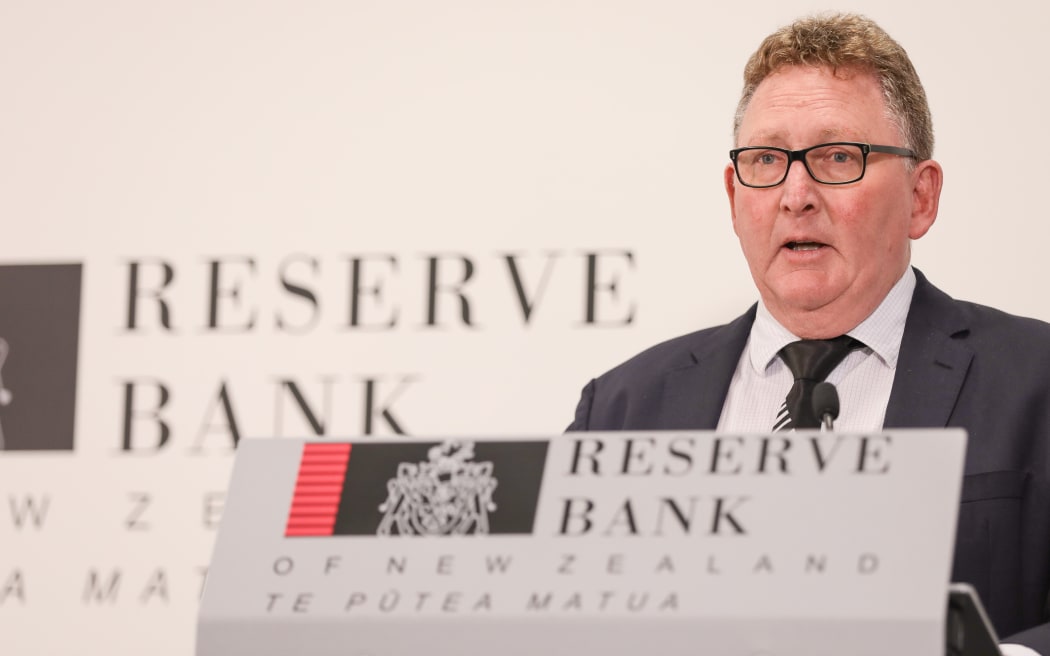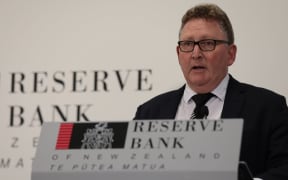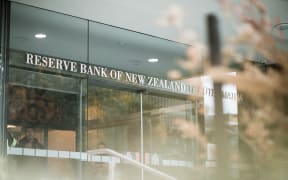
Adrian Orr has been reappointed as governor of the Reserve Bank of New Zealand for a second term. Photo: RNZ
Some deeper concerns are not addressed in the Reserve Bank's self-assessment of its monetary policy, some commentators say.
In a briefing yesterday, Te Pūtea Matua - the Reserve Bank (RBNZ) - said its actions had protected the country from economic catastrophe, though it found monetary policy should have been tightened earlier in 2021 to protect against inflation.
Critics - including the National Party - have said it failed to acknowledge some of the mistakes made, and have attacked the long-term reappointment of the bank's governor Adrian Orr this week.
Business journalist Bernard Hickey told Morning Report that as an independent, inflation-targeting central bank, RBNZ had missed its target and the public were right to want some accountability.
He said while it had responded to the pandemic in a similar way to other central banks around the world, the various things it had implemented in addition to its remit of setting the official cash rate (OCR) had caused a "perfect storm".
"The money printing, the funding for lending programme, the subsidised lending to banks ... the removal of the LVRs and then the government's wage subsidies - $20 billion all at once: Bang! It was a perfect storm."
He said the Reserve Bank, which was given special powers with its independence, "assumed and took and used those powers without going back to the Parliament, going to the opposition".
"The opposition is now saying Adrian Orr is not just a purely independent apolitical person, he did so many things in concert with Grant Robertson, so many joint memorandums of understanding, joint letters, that he crossed the line."
While Hickey did not think Orr or Robertson had any choice in how they had responded to the crisis, he said the big decisions made in a hurry had "in-effect, changed the wealth distribution of the country".
"They needed to understand how it was going to look and how they needed to win back that social licence by perhaps being a little less 'we did nothing wrong, nothing to see here, let's move on'."
Hickey believed the central bank's decision to remove loan-to-value ratios (LVRs) had "supercharged the effect of the money-printing into the housing market".
"They also, in my view, underestimated that we don't have a real economy, we have a housing market with bits tacked on, and when you pump extra demand into that housing market, you should realise that house prices are not going to go up 4 or 5 percent - they went up 45 percent in 18 months."
With the RBNZ now forecasting house prices could fall 20 percent, an "entire generation" was feeling neglected, Hickey said.
The opposition's unhappiness at Orr's reappointment could prove problematic should National come to power next year, Hickey said.
"It's going to be tough now for Nicola Willis and Christopher Luxon if they get in ... they're going to set up an independent inquiry, they've made very clear they don't really want [Orr] there."
"The risk is that we have a reserve bank governor and a finance minister at odds, clashing publicly."





